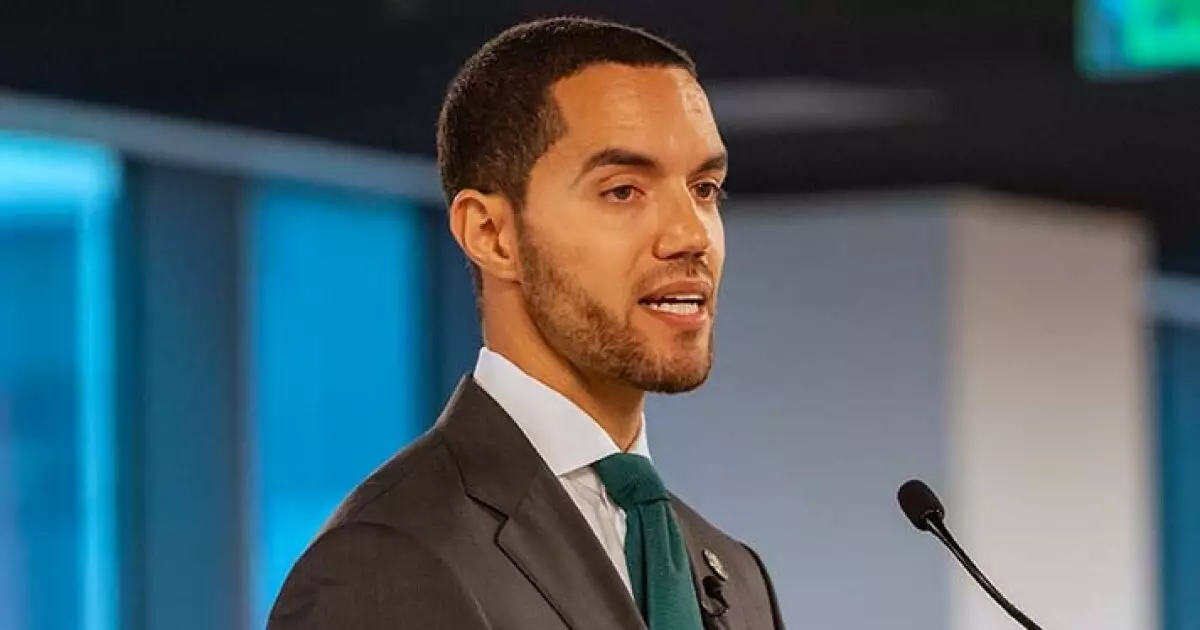In a dramatic clash of leadership, Houston Mayor John Whitmire has publicly criticized city Controller Chris Hollins over the controversial sponsorship of an upcoming investor conference, raising unsettling questions about ethics and accountability. As Whitmire leveled accusations of “pay-to-play” against Hollins, a broader discussion about governance, financial integrity, and public trust in city administration emerged, threatening to overshadow the event itself.
Whitmire’s allegations stem from an initiative by Hollins to attract corporate sponsorships from municipal bond firms for an investor conference slated for Tuesday. Speaking at a city hall press conference, the mayor disclosed that he received inquiries from several bond underwriting firms expressing alarm about sponsorship costs ranging from $10,000 to $100,000. With the promise of access, recognition, and networking in return for their funds, Whitmire asserted that this system not only presents an ethical quandary but also damages Houston’s reputation. The mayor emphasized, “This is nothing but the appearance of pay-to-play in Houston.”
This situation is compounded by the fact that bond firms with existing contracts and those aspiring to win future deals voiced their apprehensions regarding potential violations of Securities and Exchange Commission rules. Whitmire highlighted that Houston’s previous investor conferences had always been free from corporate sponsorships, indicating a troubling departure from past practices. Despite this, Hollins stood firm in defending his actions, branding the allegations “baseless” and asserting that the funds would be controlled separately by the Houston Forward Fund, a non-profit organization.
The clash escalated when Hollins criticized Whitmire’s leadership, suggesting that the mayor’s accusations were a diversion from his administration’s shortcomings on budgetary issues and fiscal policies. “This is a huge nothing burger that is meant to distract from the mayor’s failed leadership,” Hollins remarked during his own press conference. His rebuttal pointed out that the apparent financial extravagance had been a growing concern not just for him, but for a wide range of stakeholders, including city employees and national rating agencies.
The dynamic between the two officials reflects a growing rift in governance, wherein accusations flow freely amid accountability disputes. It is evident that both individuals, who assumed office in January, are grappling with pressing financial struggles facing Houston, including a structural budget deficit exacerbated by unsustainable spending practices.
In light of these serious allegations, Whitmire has demanded an investigation by the Office of the Inspector General into potential ethics violations or breaches of city ordinances surrounding the sponsorship arrangement. In a letter to participants of the investor conference, the mayor affirmed his commitment to transparency, stating that he fully expects collaboration with external law enforcement agencies should any criminality emerge during the investigation. This move signals a rather aggressive approach towards reinstating trust and ethical standards in city governance.
Moreover, the mayor declared that neither he nor his staff would participate in the conference until the allegations are resolved, further emphasizing the critical nature of this issue. Such measures are indicative of the lengths to which officials must go to restore public confidence amidst spiraling perceptions of corruption.
Interestingly, when comparing Houston’s sponsorship practices to cities like Chicago, stark contrasts emerge. Chicago’s recent investor conference saw no corporate sponsorships, a practice consistent with previous administrations. This raises important questions about the appropriateness of such practices in governance. Are the ethics of municipal credibility being compromised for the sake of immediate fiscal gains? The contrasting approaches to funding such events might serve as a cautionary tale for Houston, which has to tread carefully to avoid being ensnared in an ethical quagmire.
As the investor conference inches closer, discussions surrounding leadership accountability, fiscal prudence, and public trust are likely to remain heated. The engagement from bond underwriters and the financial community will be pivotal in determining if Houston can navigate through this integrity-based crisis.
In essence, the unfolding saga between Mayor John Whitmire and Controller Chris Hollins serves as a critical reflection on the ethical dilemmas inherent in public service. As both leaders grapple with charges of fiscal irresponsibility and ethical misconduct, the citizens of Houston will be watching closely. The outcome of the investigation, along with the public discussions surrounding governance and accountability, will set important precedents for the future of Houston’s political landscape. Ultimately, the city must chart a course that restores public trust while promoting fiscal integrity and responsible governance for all its residents.

